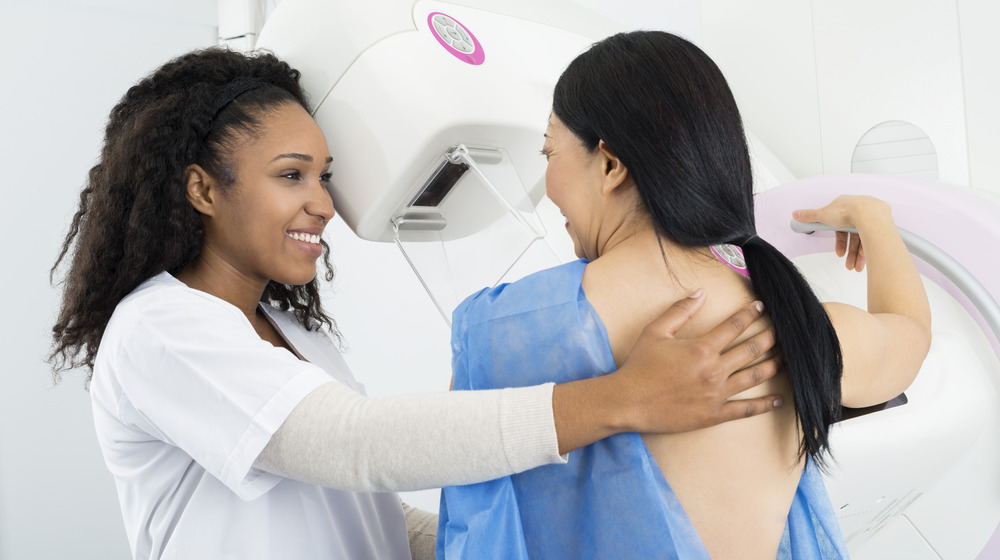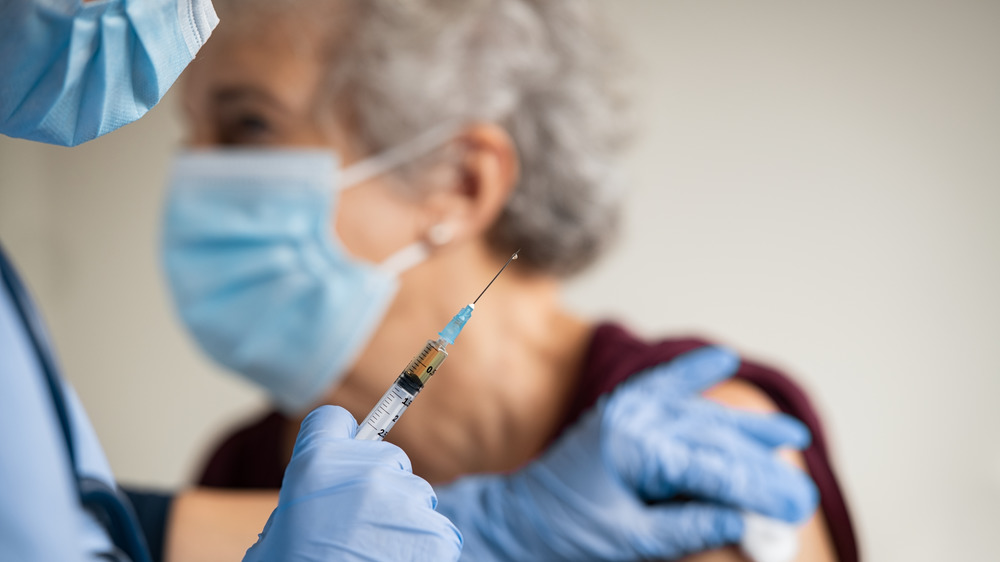COVID-19 Vaccines Could Have A Surprising Effect On Mammograms
According to statistical data from BreastCancer.org, one in every eight women in the United States will be diagnosed with invasive breast cancer within their lifetime. With an estimated 281,550 new cases expected to emerge among women in 2021, preventative screenings play an important role in our long-term healthcare. According to the non-profit healthcare organization, MemorialCare, "Screening mammography is the only method proven to reduce deaths due to breast cancer by detecting breast cancer early."
A mammogram is an x-ray image of the breasts that is used to detect any potential indications of breast cancer such as lumps or growths. It's important to schedule mammogram exams annually, especially for women age over the age of 40. However, experts at The Society of Breast Imaging are urging women to refrain from scheduling their annual exam too closely to their COVID-19 vaccine shots. New guidelines indicate that women should schedule their mammogram either before receiving their first dose of the vaccine, or as many as four to six weeks after having received the second dose, due to a potential side effect that can complicate the results of a mammogram exam (via Good Morning America).
Swelling in the lymph nodes can lead to inaccurate mammogram results
Medical experts are finding that swollen lymph nodes in the armpit is a potential side effect of both the Moderna and Pfizer coronavirus vaccine (via Good Morning America). Because the armpit is an area of the body that is often tested as part of a routine mammogram for abnormal growths, the swelling caused by the vaccine could potentially lead to confusion and could be mistaken for cancerous growth, leading to undue stress on the patient and more extensive testing.
Our lymph nodes play an important role in our immune system health as they help our body fight off infection by filtering out any potential harmful toxins (via Health). According to 69 News, "Swollen lymph nodes are a sign your body is making antibodies to fight an infection, just what a vaccine is meant to do." So while swelling after vaccination is not uncommon and temporarily expected, waiting to schedule your mammogram appointment before vaccination, or otherwise several weeks after your final vaccination, will reduce the chances of a false positive result.
Prevention is a proven way to reduce healthcare complications down the line, so do not delay mammogram care if you are due for the COVID-19 vaccine. Instead, take care to separate your appointments and inform your doctor if you have been recently vaccinated.


